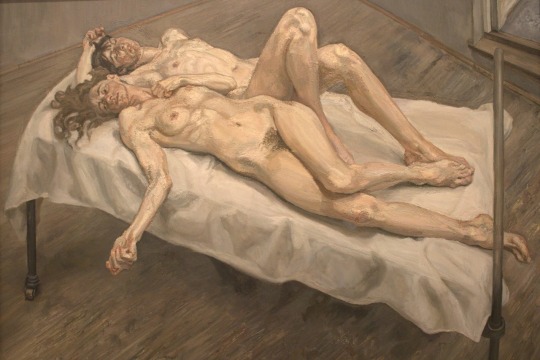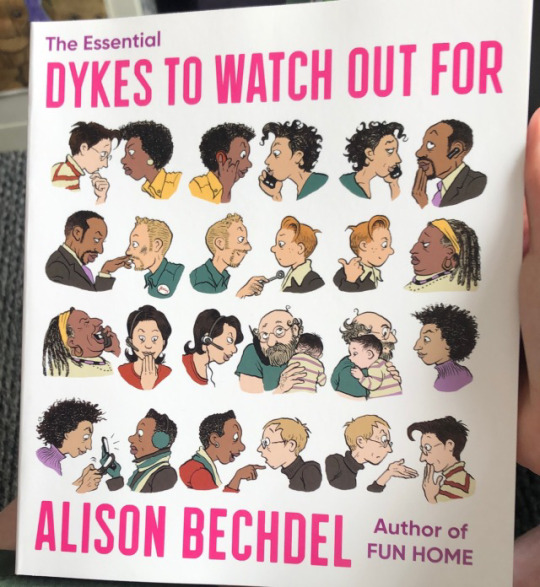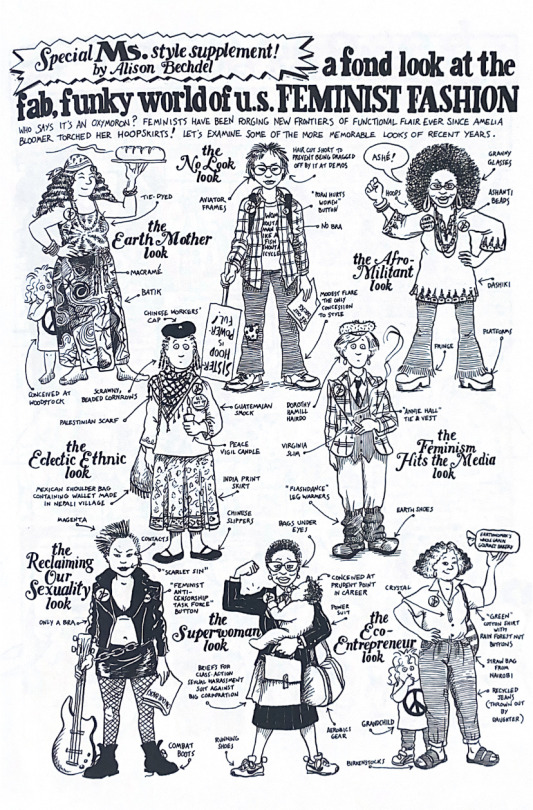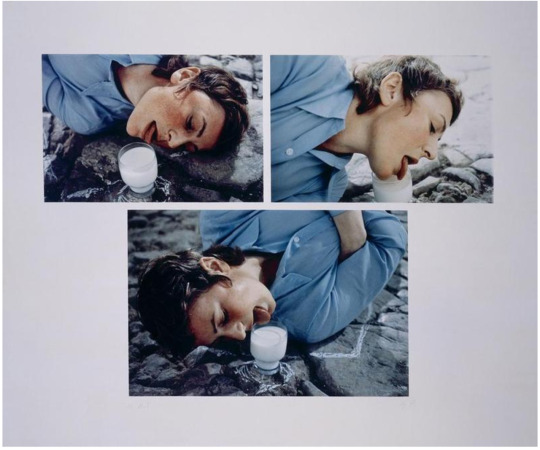Mi diario de lectura. Actualmente leo: All about love de bell hooks y My dark Vanessa de Kate Elizabeth Russell
Don't wanna be here? Send us removal request.
Text
«It demands, finally, a thrust of our own imagination—a force, a new idea—to make sure that we do not merely copy, but inherit, and proceed from what we have learned. A poet develops his or her own style slowly, over a long period of working and thinking—thinking about other styles, among other things. Imitation fades as a poet's own style—that is, the poet's own determined goals set out in the technical apparatus that will best archive those goals—begins to be embraced.»
A poetry Handbook (1994) by Mary Oliver
0 notes
Text
«5) El padre que tuvo que ser Tiresias: ¿y sabías tú, Cristina, que Polimnia y Apolo visitaron a Tiresias en su última noche para decirle que él era una historia y que las historias no acaban nunca y que las historias crean a los dioses y a la poesía, nunca al contrario? ¿Lo sabías?»
La muerte me da (2008) por Cristina Rivera Garza.
0 notes
Text
«Tal vez si me encerraran y me torturaran y me obligaran mediante horribles suplicios a escribir dos poemas maravillosos por día, los haría. Estoy segura de ello. Tal vez no busco un maestro, busco un verdugo»
Cartas Alejandra Pizarnik /León Ostrov
0 notes
Text
«Descreía radicalmente de las bondades del realismo para abordar con potencia política todos estos temas. Estaba de acuerdo con la Susan Sontag de Ante el dolor de los demás cuando argumentaba que el creciente valor de cambio y la glamourización de la violencia han impedido la comprensión cabal, es decir, la comprensión cabalmente política, de la experiencia humana del sufrimiento. ¿Cómo evitar tanto el morbo como la indiferencia cuando se trata del dolor ajeno? ¿Qué hacer para transformar el acto de ver un cuerpo destrozado (en la calle, por ejemplo) en algo que no sea puro voyeurismo o vacía fascinación? ¿De qué manera evadir el sentimentalismo artero con el que con tanta frecuencia se explota el dolor ajeno con fines de auto-agrandamiento? ¿Cómo evadir el shock comercial de la violencia y tocar, y trastocar si es del todo posible, el mundo de los sufrientes?» Prólogo, La muerte me da (2008) por Cristina Rivera Garza
0 notes
Text

Close, G. S. (2014). Antinovela negra: Cristina Rivera Garza’s “La muerte me da” and the Critical contemplation of violence in contemporary Mexico. MLN, 129(2), 391-411. http://www.jstor.org/stable/24463497
0 notes
Text
«[there is a] temptation to look at the world as through it were an extension of the imaginary... Like everyone else, he craves meaning. Like everyone else, his life is so fragmented that each time he sees a connection between two fragments he is tempted to look for a meaning in that connection. The connection exists. But to give it a meaning, to look beyond the bare fact of its existence, would be to build an imaginary world inside the real world, and he knows it would not stand. At his bravest moments, he embraces meaninglessness as the first principle... There is the world, and the things one encounters in the world, and to speak of them is to be in the world... It means only what it is.»
The Invention of Solitude (1982) by Paul Auster.
0 notes
Text
«–¿Es una mujer que posa de mujer siendo un hombre? ¿O es un hombre que es lo contrario su revés? –se interrogaba a sí misma la Detective, sin dejar de verlo. Al día. A Valerio. –¿Es un monstruo como tú y como yo? ¿Una aberración de la narración? –el sinsentido, como se lo temía Valerio, cada vez llegaba más pronto. Iban de un lado a otro como moléculas, temiendo lo peor. Cortejando lo peor. Produciendo lo peor.»
La muerte me da (2008) por Cristina Rivera Garza (p. 240)
0 notes
Text
“I knew I had an ugly life. I knew I was lonely and I was scared. I thought something might be wrong with my father, wrong in the worst possible way. I believed he might contain a pathology of the mind–an emptiness–a knocking hollow where his soul should have been. But I also knew that one day, I would grow up. One day, I would be twenty, or thirty, or forty, even fifty and sixty and seventy and eighty and maybe even one hundred years old. And all those years were mine, they belonged to nobody but me. So even if I was unhappy now, it could all change tomorrow. Maybe I didn’t even need to jump off the cliff to experience that kind of freedom. Maybe the fact that I knew such a freedom existed in the world meant that I could someday find it. Maybe, I thought, I don’t need a father to be happy. Maybe, what you get from a father you can get somewhere else, from somebody else, later. Or maybe you can just work around what’s missing, build the house of your life over the hole that is there and always will be.”
— augusten burroughs, a wolf at the table
2K notes
·
View notes
Text
«Durante cierto tiempo estuve así, volviendo y dejándolo, hasta que me convertí en Virginie Despentes. Siempre me ha impresionado la similitud entre la parte promocional de mi trabajo de escritora mediatizada y el acto de prostituirse. Con la diferencia de que cuando dice "Soy puta", tienes a todos los salvadores de tu parte, mientras que cuando dices "Salgo en la tele" lo único que encuentras son envidiosos. Pero el sentimiento de no poseerse a sí misma por completo, de vender lo íntimo, de mostrar lo privado, es exactamente el mismo»
Teoría King Kong (2007) por Despentes (p. 88)
0 notes
Text
«What Freud actually said in 1935 was that "Homosexuality... is nothing to be ashamed of, no vice, no degradation; it cannot be classified as an illness».
0 notes
Text



La gafas de Josefina Vicens
0 notes
Photo

Lucian Freud, Two Women, 1992, oil on canvas
172 notes
·
View notes





